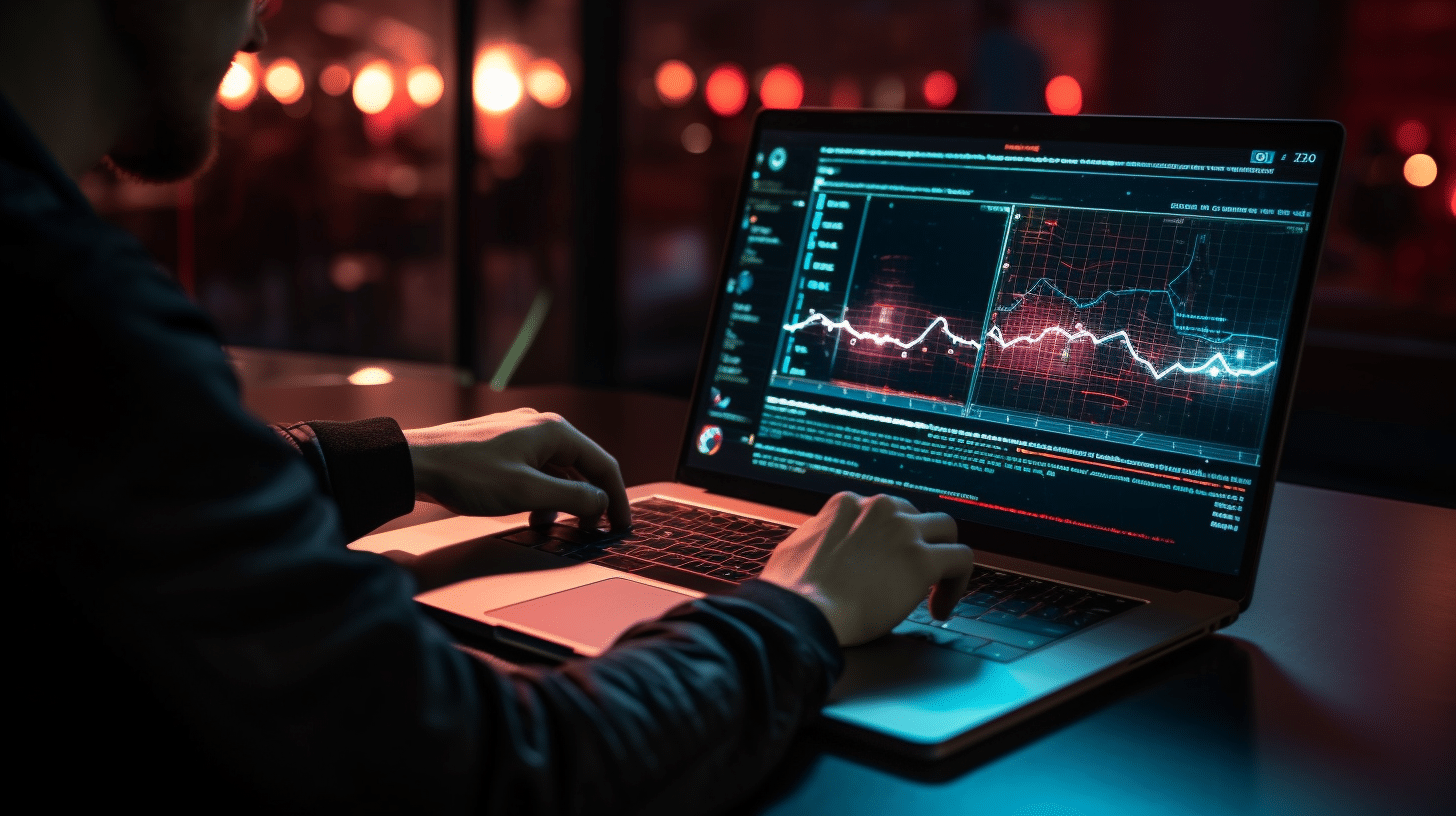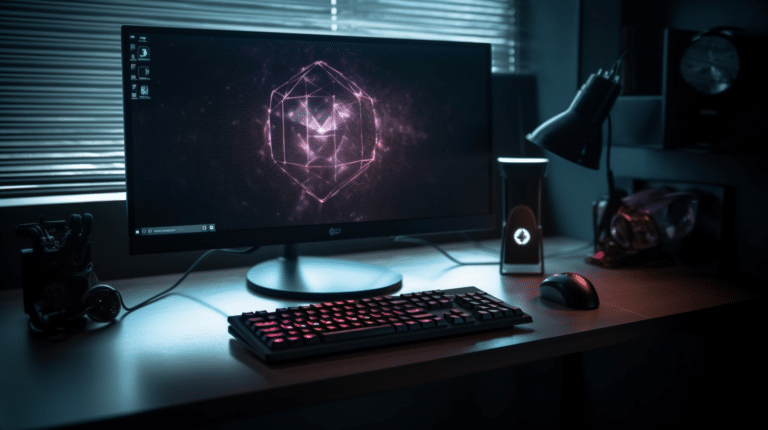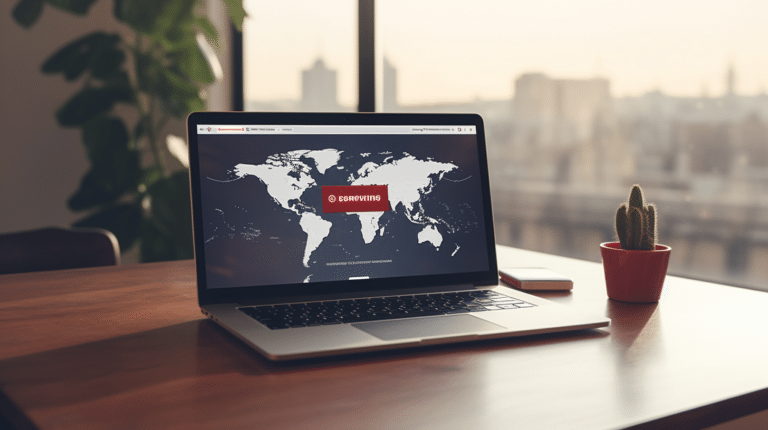As privacy becomes increasingly important for internet users, virtual private networks (VPNs) have become a popular choice to enhance online security and maintain anonymity. One such VPN provider, NordVPN, has established itself as a reputable service with a focus on user privacy. Central to this aspect of privacy is their logging policy, which outlines what data, if any, is kept regarding user activities while connected to their service.
NordVPN prides itself on its no-logs policy, ensuring that user activity and data are not stored or monitored. This commitment to data protection has garnered praise from users, as well as led to a series of independent audits that have verified NordVPN’s claims. By ensuring strong data protections, payment security, and adhering to strict jurisdiction laws, NordVPN is able to provide an enhanced level of user privacy in an increasingly data-driven world.
Key Takeaways
- NordVPN practices a strict no-logs policy, ensuring user privacy and data protection.
- Independent audits have verified NordVPN’s no-logs claims, establishing trust and credibility.
- Additional security features, such as payment security, strengthen NordVPN’s commitment to user privacy.
Privacy and Jurisdiction
NordVPN is based in Panama, a country known for its strong privacy laws and lack of mandatory data retention laws, making it an ideal jurisdiction for a VPN service. This allows NordVPN to maintain a strict no-log policy which ensures that users’ internet activities are not recorded, monitored, or shared with third parties.
In terms of user privacy, NordVPN takes several measures to protect users’ data. The company employs strong encryption and security protocols, such as the Advanced Encryption Standard (AES) with 256-bit keys, which is commonly used by banks and governments to safeguard sensitive information. Additionally, NordVPN offers various privacy features like an automatic kill switch, DNS leak protection, and obfuscated servers, further ensuring users’ online activities remain private and secure.
Another crucial aspect of privacy is how NordVPN handles user data. The company pledges not to collect any data related to users’ online activities, such as browsing history, IP addresses, or bandwidth usage. This commitment to a no-logs policy is backed up by regular independent audits, which help confirm the trustworthiness of the service in regards to user privacy.
NordVPN operates a vast network of servers spread across multiple countries, which not only allows users to bypass geo-restrictions but also adds to the service’s privacy capabilities. By routing users’ internet traffic through servers in different jurisdictions, NordVPN can effectively anonymize users’ online activities and protect them from government surveillance or data collection by internet service providers.
In conclusion, NordVPN’s Panama-based jurisdiction, strict no-logs policy, advanced security features, and worldwide server network work together to provide a high level of privacy and security for users. These measures help ensure that users can enjoy the internet without fear of exposing their personal data or being monitored by third parties.
Data Protection Measures
NordVPN, a widely known Virtual Private Network (VPN) service, places a strong emphasis on privacy and security. A key aspect of their approach includes a strict no-logs policy which helps protect users’ personal information. This policy means that NordVPN does not collect, store, or share any of their customers’ IP addresses, browsing history, or other identifiable data.
To ensure secure connections, NordVPN operates a large network of servers spread across multiple countries. When users connect to these servers, their original IP address is masked and replaced with one from the server, which makes it difficult for third parties to track their online activities. Moreover, NordVPN uses military-grade encryption techniques for data transmission, significantly reducing the risk of data breaches or unauthorized access to users’ information.
In addition to the no-logs policy, NordVPN implements several other security measures, such as:
- Automatic Kill Switch: In case the VPN connection drops, this feature automatically blocks internet traffic, preventing potential data leakage.
- CyberSec: This integrated feature blocks ads and malicious websites, providing an enhanced browsing experience and additional protection against potential threats.
- Double VPN: For users who require an extra layer of security, NordVPN offers the option to route their traffic through two VPN servers. This adds another layer of encryption and further camouflages their IP address.
It is essential to note that while NordVPN takes data protection seriously, no system can guarantee complete security. Therefore, it is always advisable for users to regularly update their devices and software and remain vigilant in their online activities. By understanding these data protection measures and using them effectively, individuals and organizations can significantly enhance their online security and reduce the risk of cyber threats.
Independent Audits
NordVPN is known for its commitment to user privacy, and one way it demonstrates this is through independent audits. PricewaterhouseCoopers (PwC), a reputable global auditing firm, has conducted audits on NordVPN’s operations to ensure that their claims of a strict no-logs policy are accurate and reliable.
These independent audits are crucial in the VPN market, as they provide an objective evaluation of a VPN provider’s logging practices. They help potential users make informed decisions while selecting a provider. Audits like these hold VPN services accountable for the claims they make about user privacy and security.
In addition to PwC, VerSprite is another firm that has worked with NordVPN, focusing on assessing their infrastructure security. The collaboration with these well-established auditing firms highlights NordVPN’s dedication to maintaining a high level of privacy and security for its users.
Just like any other sector, the VPN market benefits from independent audits because they add an extra layer of credibility to a provider’s offerings. With the increasing number of security concerns and privacy breaches today, VPN users want to be assured that they can trust the services they use. Thus, audits play a vital role in building and sustaining that trust.
It is important to note that not all VPN providers undergo independent audits or share their results with the public. However, NordVPN’s transparency in this respect signifies their commitment to prioritizing user privacy and security. By engaging with reputable firms like PricewaterhouseCoopers and VerSprite, VPN services like NordVPN can set an example for the rest of the VPN market to follow.
How NordVPN Ensures User Privacy
NordVPN is committed to providing its users with a secure and private browsing experience. One of the essential aspects of this commitment is their strict no-logs policy. NordVPN does not store any user activity or user data, ensuring that there are no records of their users’ browsing habits or online behaviour.
To protect their users’ privacy, NordVPN employs advanced encryption technologies, such as Secure Sockets Layer (SSL) and Transport Layer Security (TLS). This security measure prevents unauthorized third parties, including ISPs, from intercepting, monitoring, or tampering with users’ internet traffic. Additionally, NordVPN operates a vast network of servers, allowing users to connect to an encrypted virtual tunnel that securely routes their traffic through these servers. This process masks the user’s true IP address and renders their browsing activity effectively invisible to prying eyes.
NordVPN’s privacy policy explicitly states its commitment to preserving user privacy and maintaining a no-logs policy. The company ensures that it does not record any connection timestamps, session information, used bandwidth, or IP addresses. With no sensitive information being logged, users can have confidence in the security of their online activity and personal data.
Regularly conducting security assessments and evaluations is another way NordVPN ensures the protection of its users’ privacy. The company continually updates its infrastructure and security measures in response to new threats and vulnerabilities, thereby safeguarding users’ anonymity and online security.
In summary, NordVPN prioritizes its users’ privacy by implementing a strict no-logs policy and employing advanced encryption technologies that shield internet traffic and personal information from potential threats, while maintaining a comprehensive privacy policy that ensures users’ data remains secure.
Payment and Personal Information
NordVPN is known for its strict stance on user privacy, which includes their “no-logs” policy. However, it is also important to address how they handle payment and personal information.
When subscribing to NordVPN, users can choose to pay through a variety of payment methods. Notably, NordVPN accepts cryptocurrencies such as Bitcoin, which can help protect individual user information. By using cryptocurrencies for payment, users can maintain a higher level of anonymity because the transaction is not directly linked to their personal data.
For other payment methods, NordVPN collects only the necessary information to process the payment, such as user’s email address. It is important to note that using traditional payment methods, such as credit card or PayPal, inherently involves sharing some personal data with the payment provider. However, NordVPN claims to maintain minimal user data and does not keep logs of users’ online activities.
Users should create a unique email address specifically for their NordVPN account, further reducing any potential link between their VPN usage and personal information. Additionally, it is recommended not to use any personal information in the email address, such as full name or birthdate.
In conclusion, NordVPN’s acceptance of cryptocurrencies like Bitcoin and their minimal collection of personal data enhances user privacy. However, users should take extra precautions when providing payment and personal information by using a separate email address and considering more anonymous payment options like cryptocurrencies.
Additional NordVPN Features and Security
NordVPN offers a range of features that contribute to enhancing the security and privacy of its users. One of these features is the no-logs policy. According to an empirical analysis of commercial VPNs, NordVPN explicitly claims to have a no-logs policy, which means they do not track or store any information about their users’ online activities.
In addition to the no-logs policy, NordVPN utilizes WireGuard, a new and innovative VPN protocol designed to offer high-speed connections and improved security. This protocol uses cutting-edge cryptography, making it more secure than traditional VPN protocols like OpenVPN and IPSec.
Another important security feature offered by NordVPN is the Kill Switch. This function automatically disconnects your device from the internet if the VPN connection drops, ensuring your real IP address and other sensitive information are protected from accidental exposure. NordVPN provides Kill Switch features for devices like Mac and Android.
An extra security layer is added by the Double VPN feature, which routes your traffic through two separate VPN servers, encrypting your data twice. This helps protect your online privacy by making it even more challenging to trace your activities back to you.
For users who desire added privacy and anonymity, NordVPN offers Onion Over VPN. This feature combines the anonymity of the Tor network with the strong encryption of a VPN, allowing you to access onion websites while still benefiting from the encryption provided by NordVPN.
To summarize, NordVPN goes the extra mile to ensure the security and privacy of its users, offering a variety of features such as no-logs policy, WireGuard, Kill Switch, Double VPN, and Onion Over VPN across different platforms like Mac and Android. These features contribute to a secure and reliable VPN experience for users who value their online privacy.
Governments and Data Retention Laws
Many countries have data retention laws that require internet service providers (ISPs) and other telecommunications companies to store user data for a specified period. These laws are often implemented for law enforcement and national security purposes, enabling government agencies to access user data in criminal investigations or to combat terrorism.
In some jurisdictions, VPN providers may be subject to data retention requirements if they are considered a telecommunications service. While NordVPN is based outside such jurisdictions – specifically in Panama, a country with no mandatory data retention laws – their global presence could expose them to pressures from various governments. In these situations, NordVPN may need to balance their no-logs policy with legal obligations or risk being banned in particular nations.
It is important to note that NordVPN has previously experienced security incidents, but they claim no significant damage was caused, and there is no historical record or traffic logs available. This highlights the importance of continuous security improvements and transparency about data management practices in the VPN industry.
In conclusion, NordVPN’s no-logs policy is vital in providing user privacy and security, while data retention laws create an ongoing challenge for VPN services. It is crucial for users to understand their specific context and how these factors may influence the extent of privacy they can expect from a VPN provider.
Common Concerns about VPN Logs
There is a growing concern among VPN users about the security and privacy of their data. One of the main aspects that users pay attention to is whether VPN providers keep logs of their customers’ activities. It’s crucial for a VPN service to have a strict no-logs policy to ensure user privacy and protect against potential data breaches or government requests for information.
NordVPN is a popular VPN provider that claims to follow a zero-logging policy to ensure user privacy. This means that NordVPN promises not to store any connection logs or usage logs of their customers. Connection logs consist of information such as the user’s IP address, connection timestamps, and session duration, while usage logs may comprise data related to the user’s online activities, including websites visited or files downloaded.
By not keeping any logs, NordVPN aims to prevent potential privacy-related issues that may arise if an attacker gains access to VPN traffic or if authorities request user data. It is important to note that not all VPN providers are fully transparent about their logging policies, which may create challenges in assessing their commitment to user privacy.
Another aspect that users may be concerned about is the refund procedures adopted by VPN providers. NordVPN offers a 30-day money-back guarantee, allowing users to test the service and request a refund if they are not satisfied. This enables users to gauge the VPN’s effectiveness in terms of privacy protection, performance, and features without any significant financial risks.
Overall, when considering a VPN service, users should carefully examine the provider’s logging policies and practices to ensure their privacy is truly protected. A strict no-logs policy is a crucial requirement for any VPN provider aiming to safeguard user privacy and maintain trust in the increasingly privacy-conscious online environment.
Remember that it’s essential to research and compare different VPN services based on their track records, user data security features, and commitment to maintaining strict log-free policies. By doing so, users can make an informed decision and select a trustworthy VPN service that best aligns with their privacy and security needs.
Frequently Asked Questions
Are user logs retained by NordVPN?
NordVPN has a strict no-log policy, which means they do not retain any user activity logs. This ensures that your browsing history, IP address, and other sensitive data remain private and cannot be accessed by third parties.
Is NordVPN’s no-log policy reliable?
Yes, NordVPN’s no-log policy is considered reliable. They have been consistent and transparent in their claims of not logging user activities, giving users peace of mind when using their services.
How does NordVPN compare to ExpressVPN in terms of logging?
Both NordVPN and ExpressVPN have strict no-log policies, ensuring that your internet activities are not tracked or stored. While both providers are highly recommended for their commitment to privacy, it is essential to research and compare their features to determine the best option for your needs.
Do Surfshark and NordVPN maintain user logs?
Neither Surfshark nor NordVPN maintain user logs. Both providers prioritize user privacy and have strict no-log policies that prevent the retention of any user data, ensuring your online activities remain confidential.
What is the significance of NordVPN’s privacy policy?
NordVPN’s privacy policy is crucial because it outlines the company’s commitment to user privacy. The policy clearly states that NordVPN does not collect, store, or share any user activity logs, providing transparency about how your data is protected while using their services.
Can NordVPN provide user data to law enforcement?
As NordVPN adheres to a strict no-log policy, they do not have any user activity data to provide to law enforcement or third parties. By not retaining user logs, NordVPN ensures that user privacy is maintained, even in the event of legal requests for information.






